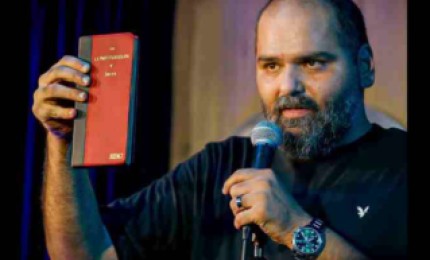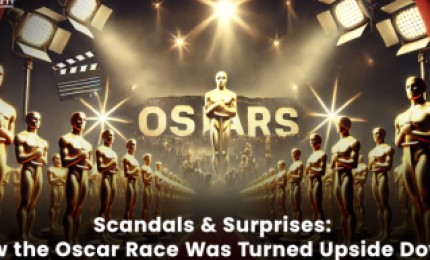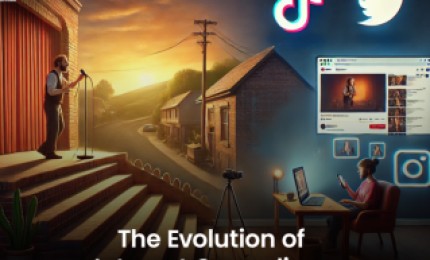Comedy, a genre that has entertained audiences for centuries, relies heavily on character archetypes to deliver its humor. These archetypes, recurring character types that can be found in comedic works across cultures and eras, serve as the backbone of many comedic narratives. They are instantly recognizable, evoking familiarity and relatability, making it easier for the audience to connect with the story. In this article, we'll explore ten of the most enduring comedy archetypes, shedding light on their characteristics, origins, and their timeless appeal.
The Wise Fool is an intriguing blend of innocence and insight. At first glance, they may appear naive or even unintelligent, but beneath the surface lies a reservoir of wisdom and clarity. This character often stumbles upon profound truths, presenting them in a way that's both humorous and thought-provoking. Their observations, often delivered offhandedly or unintentionally, have a knack for highlighting the absurdities and contradictions of life. This juxtaposition of apparent simplicity with depth is what makes the Wise Fool so compelling. Characters like Forrest Gump, with his simple yet profound take on life, or Mr. Bean, whose silent antics reveal the comedy in everyday situations, embody this archetype. Their unique perspectives, devoid of societal filters, offer a refreshing take on the world, making audiences both laugh and reflect.
Overflowing with confidence, the Braggart is all about self-promotion. They regale anyone within earshot with tales of their prowess, achievements, and adventures. However, there's a catch - their stories are often grossly exaggerated or entirely fabricated. The humor arises when the Braggart's claims are challenged or when they find themselves in situations where they must prove their tall tales. Their inability to live up to their own hype, combined with a lack of self-awareness, provides endless comedic opportunities. Think of Shakespeare's Falstaff, whose grandiose tales of bravery contrast hilariously with his cowardly nature. Or consider Ron Burgundy from "Anchorman," whose inflated ego often lands him in laughably awkward situations. The Braggart's blend of overconfidence and incompetence is a recipe for comedic gold.
In the chaotic world of comedy, the Straight Man (or Woman) is the anchor. Surrounded by eccentric, over-the-top characters, they react with disbelief, annoyance, or exasperation. Their grounded, logical perspective serves as a foil, amplifying the absurdity around them. They are the voice of reason in a world that often defies it. Their reactions, often delivered deadpan, provide a stark contrast that heightens the comedic tension. Bud Abbott, of the Abbott and Costello duo, is a classic example. His serious demeanor accentuates Costello's antics, making them even funnier. Similarly, Jim Halpert from "The Office," with his signature looks to the camera, embodies the Straight Man role, reacting to the office's madness with a mix of amusement and disbelief.
Life is a playground for the Jester. Driven by an insatiable desire for laughter and amusement, they find humor in everything. From pranks and jokes to slapstick and wordplay, the Jester uses every tool in the comedic arsenal. Their unpredictable nature and boundless energy make them both endearing and exhausting. They often find themselves in tricky situations due to their antics, but their infectious joy usually wins people over. Characters like Ace Ventura, with his over-the-top mannerisms and catchphrases, or Dory from "Finding Nemo," with her cheerful forgetfulness, embody the Jester archetype. They remind audiences of the joy of living in the moment and the importance of not taking life too seriously.
The world is a minefield of potential disasters for the Neurotic. Every situation, no matter how mundane, is a cause for anxiety, overthinking, and second-guessing. Their minds are always racing, analyzing every detail and imagining the worst-case scenarios. This constant state of worry and self-doubt, while exhausting for them, is a rich source of comedy. Their overreactions, wild imaginations, and frequent panic attacks provide ample opportunities for humor. Think of George Costanza from "Seinfeld," whose neuroses lead him to concoct elaborate lies and schemes, or Woody Allen's characters, who turn anxiety into an art form. The Neurotic's blend of vulnerability and paranoia resonates with anyone who's ever felt overwhelmed by the complexities of modern life.
Everyone loves a good underdog story. The Underdog is the character who, despite facing insurmountable odds, never gives up. They might lack the skills, resources, or natural talent of their counterparts, but they more than make up for it with sheer determination and heart. Their journey is filled with challenges, setbacks, and comedic blunders, but it's their resilience that endears them to audiences. We laugh at their missteps, cheer for their small victories, and root for them to overcome the odds. Characters like Ted Lasso, who brings optimism and kindness to the cutthroat world of English football, or Napoleon Dynamite, whose quirky dance moves win over his school, exemplify this archetype. Their stories remind us of the power of perseverance and the value of staying true to oneself, even when faced with ridicule or adversity.
Positioned in power but lacking the competence to wield it effectively, the Bumbling Authority Figure is a staple in comedic narratives. They might be a clueless police chief, an inept school principal, or a deluded political leader. Their attempts to assert their authority often backfire, leading to hilarious outcomes. Their lack of self-awareness, combined with their misplaced confidence, makes them both frustrating and endearing. Chief Wiggum from "The Simpsons," with his misguided attempts at law enforcement, and Inspector Clouseau from "The Pink Panther" series, whose investigations are a masterclass in chaos, are classic examples. Their blunders highlight the comedic gap between their perception of competence and the reality of their ineptitude.
Marching to the beat of their own drum, the Oddball is delightfully unpredictable. They see the world through a unique lens, often challenging societal norms and expectations. Their eccentricities, whether it's a bizarre fashion sense, unconventional hobbies, or a penchant for strange philosophies, make them stand out. While they often find themselves at odds with their surroundings, their unapologetic individuality is refreshing. Phoebe Buffay from "Friends," with her quirky songs and spiritual beliefs, and Kramer from "Seinfeld," whose entrances and business schemes are legendary, embody this archetype. They remind us of the joy of embracing one's quirks and the value of viewing the world from a different perspective.
Comedy often thrives on contrasts, and the Double Act epitomizes this. Comprising two characters with opposing personalities, the humor arises from their interactions and the friction between their contrasting viewpoints. One might be calm and logical, while the other is emotional and impulsive. Their dynamic, filled with misunderstandings, disagreements, and comedic tension, is a testament to the adage that opposites attract. Iconic duos like Laurel and Hardy, with their contrasting physiques and personalities, or the odd couple pairing of neat freak Felix and slob Oscar, showcase the comedic potential of this archetype. Their interactions highlight the challenges and joys of navigating relationships with those who are our polar opposites.
Armed with a winning smile, smooth talk, and undeniable charisma, the Charmer can woo anyone. They navigate social situations with ease, often using their charm to get out of tricky situations. However, their reliance on charm can sometimes backfire, leading to comedic predicaments. Whether it's Joey Tribbiani's iconic "How you doin'?" or Barney Stinson's elaborate plays from "The Playbook," their escapades in the world of romance provide endless laughs. While they often come across as confident, even cocky, their occasional vulnerabilities make them relatable. Their stories remind us of the complexities of human connections and the humorous pitfalls of modern romance.
Comedy is a reflection of life, highlighting its absurdities, challenges, and joys. These archetypes, with their distinct personalities and quirks, offer a comedic lens through which we can view the human experience. From the naive insights of the Wise Fool to the resilient spirit of the Underdog, they showcase the diverse ways in which humor can manifest. As we laugh at their antics, missteps, and interactions, we're reminded of the universal truths they represent. In a world filled with complexities, comedy, and its enduring archetypes, offer a respite, making us laugh, reflect, and connect with our shared humanity.

15 Ways to Make Money as a Singer: A Complete Guide to Monetizing Your VoiceEarning money as a singer requires more than just talent, it demands creativity, persistence, and a willingness to explore...
Read Blog
When Kunal Kamra's Humor Got Him Into Trouble: A Deep Dive into the Controversies of India's Most Fearless ComedianKunal Kamra Controversy: Laughter, Lawsuits, and the Limits of Free SpeechStand-up...
Read Blog
The Oscar race is always full of drama, but this year? It’s absolute chaos. From shocking controversies to unexpected winners, the battle for Best Picture at the 2024 Academy Awards has taken...
Read Blog
In the ever-changing landscape of entertainment, few transformations have been as dramatic and swift as the rise of internet comedians. What began as a platform for amateur funny videos has evolved...
Read Blog
Introduction: In the competitive world of entertainment and talent, having the right representation can make all the difference in launching and sustaining a successful career. Whether you're...
Read Blog.jpg)
While the world of modelling often dazzles with glitz and glam, it's also critical we discuss its darker shades, pulling the curtain back on some challenging realities. Today, let's embark on...
Read Blog